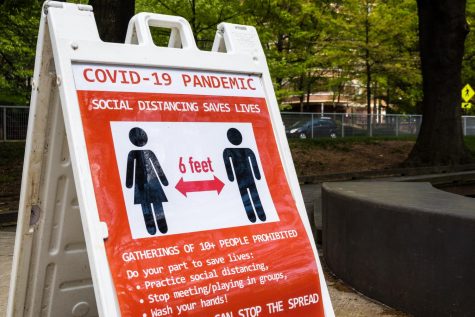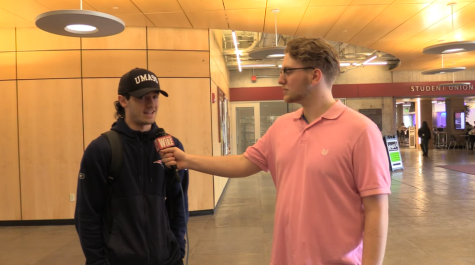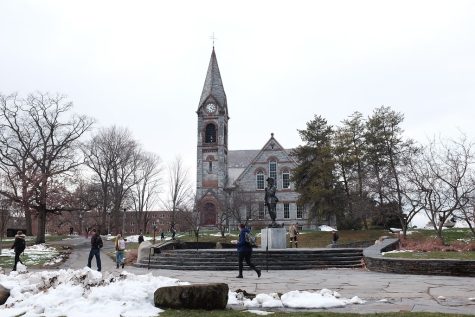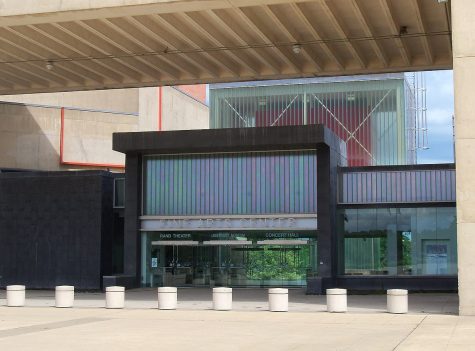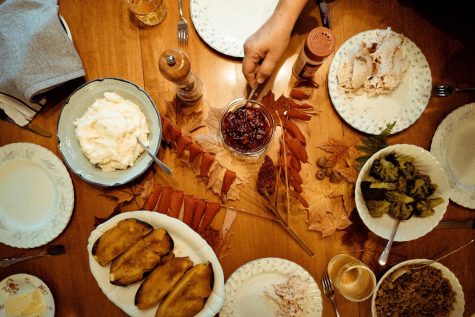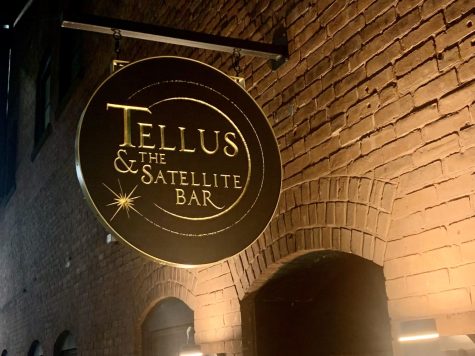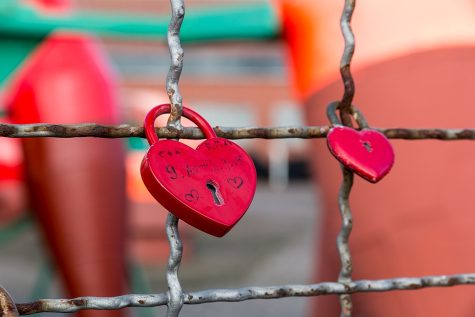Looking Back: Getting the vaccine, figure skating, mourning a loss and marriage in the time of Covid-19
Four students reflect on life the past year during the coronavirus pandemic
Editor’s note: The following stories are the second part of Looking Back, a two-part series of first-person blog posts looking back at life the past year. The series is produced by Professor Steve Fox’s Journalism 300 course in the Journalism Department at UMass Amherst.
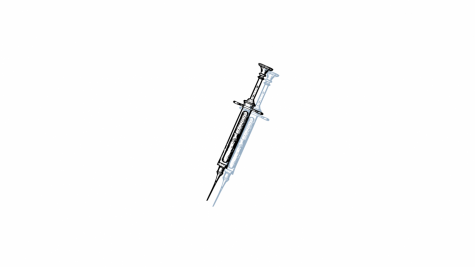
When to get the vaccine (when you’ve had Covid-19)
By Kate Katz
There are still lots of unknowns surrounding coronavirus. Now that vaccination rollouts are well on their way, questions are arising about how vaccination efforts impact people who have recently had or been diagnosed with Covid-19.
On March 13, my roommate and I woke up to missed calls on both of our phones from the generic UMass University phone number. We looked at each other knowingly, and then each received the dreaded second phone call informing us that we had tested positive for coronavirus. By this point in time, I had been eligible to get the vaccine for a little bit, being that I have a pre-existing neurological condition, however, I soon realized that this recent diagnosis would be a game-changer in that happening for me. Based on the CDC guidelines, I knew that I would have to get vaccinated at some point to protect myself from future infection, but it was just a matter of when.
I decided to give the UMass Covid-19 line a call with some of my questions regarding this situation. The man on the other line explained to me that it would be ideal for me to get my first vaccine 1-2 weeks post quarantine so that I would have peak antibody numbers. I found this very interesting and proceeded to call my cousin Sidney about what I’d just heard, who had Covid-19 not too long before I got it. This is when things got sticky.
According to Sidney, she had talked to multiple people about the issue and was told to wait much longer to receive the vaccine. In fact, she heard that having too many antibodies, and in essence having super immunity, could actually be more hurtful for someone in the long run. After her detailing this, I began to develop a preconceived notion that I should wait the full 90 days post quarantine to get the vaccine. This 90 days refers to the amount of time that one has to wait before their coronavirus tests will stop coming back as positive every time they get one, and the body will revert back to a normal testing state.
Apparently, I am not the only person who has had this query, and so I implore people in my scenario to check out this link in search of more information around the issue. The general point of the article is that people can now stop waiting for the full CDC guideline-recommended 90 day period before getting the vaccine after having coronavirus. Interestingly enough, Sidney called me a little bit ago telling me that she got her doctor on the phone and they said this same thing. Hopefully, there will be more information coming out soon regarding this topic.
For now, here are some stories that I managed to find on it: Kll TV | Miami Herald | Journal Inquirer
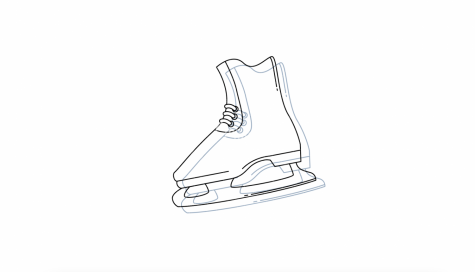
How figure skating has changed; on and off the ice
By Shyamaa Khan
From sharing one tube of lipstick to a coach being ready to catch a skater in a fall, figure skating is not a sport meant to be socially distanced.
I went from getting ready for practice and competitions in one tiny room, sharing the same makeup, and skating side by side with my teammates, to having zoom “practices” where each teammate is in their own room, in their own homes, in their own hometowns, all across the country. When the pandemic hit, and colleges sent their students home, my synchronized skating team was not worried about it affecting us since our season was over.
The traditional synchronized skating season begins in April and lasts until the next February, but collegiate synchronized skating begins in September and ends in February. Most collegiate skaters take the summer off so no one on our team was worried. However, as the pandemic continued and didn’t seem like it was going to end anytime soon, I took it upon myself to try and get back into practice as rinks started to open up again in summer of 2020.
Walking back to the rink felt like I was somewhere I had never been before, instead of the place I felt I had grown up in. Instead of walking into the building I knew and loved, I was guided to rubber mats outside of the rink with black metal chairs placed in taped off squares six feet from each other. With my mask on, I laced up my skates and my temperature was checked before I entered the building. It was only as I was walking to the ice that I realized I would have to skate with my mask on.
My coach has always been a “hands-on” coach. If she saw that my leg was not high enough while doing a drill, she would skate behind me and push my leg up. If she saw that my arms were misplaced, she would place them for me, so I knew what the right technique was supposed to feel like. She was always on the ice, always ready to greet me with a hug and chat away during what was supposed to be our productive lesson time. But with a newborn baby at home, and COVID-19 cases rising, I knew she was going to be extra careful.
Instead of standing on the ice next to me, my coach stood where the hockey benches were, wearing two masks, and shouting my corrections at me. This was much different than I was used to, but I saw almost all the skater/coach pairs doing the same thing. Whether the coaches were on the ice or standing on the sidelines, there was zero interaction between the coaches and the skaters.
I started to wonder, “what am I even doing practicing?” as every event had been cancelled. At the time I wasn’t even sure if UMass would be holding practices in the fall and I was quite right about that. Most collegiate teams in the country abstained from practicing and all competitions were being held virtually anyways. Most rinks near the Amherst area were closed, so I found myself driving an hour to Westfield just to be able to skate for two hours once a week. I had gone from sharing the ice with my teammates four to five times a week to skating by myself once a week. The girls I had spent so much of my time freshman year with, I saw once a month on a zoom call. My only communication with my team otherwise took place in the comment section of our Instagram accounts, which seemed the only way for anyone to still stay in contact.
While the university anticipates a normal season next year, things will definitely be different. Practices will likely still be masked practices and there will definitely not be any lipstick sharing. As we wait for the coming year, it is important to reflect and accept that there are some things that may have changed permanently.
More links about figure skating and COVID-19: U.S. Figure Skating | Wall Street Journal | Learn to Skate USA
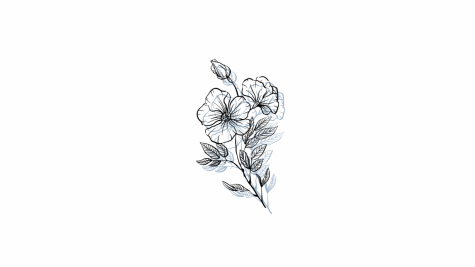
Mourning a loss during the pandemic
By Samantha Simons
Mourning the loss of a loved one during Covid-19 when that person did not suffer from the illness seems invalid in a way. There is a sense of guilt that emerges when I think about the loss of my grandmother. The world is living in a complete lockdown and over 555,000 Americans have died and, yet, I feel sadness then guilt surrounding my grandmother’s passing.
This recurring feeling is derived from the constant news cycles showing families and loss because of the virus. I have been lucky to remain healthy and my family has as well; however, a sudden decline in health took my grandmother in June of 2020. During this time, Covid-19 case numbers were rising and the severity of the virus was making itself very apparent. The loss felt like a discussion reserved only for the virus.
When it came time for a funeral with a capacity of eight people, I often was asked if she passed due to Covid-19. When I got to reply “no,” I felt disheartened by the fact that this was the first question brought up. Then, I felt lucky. My grandmother never suffered from the virus and, because she was in an apartment complex, none of her neighbors did either. This relief created guilt.
Today, I miss my grandmother more than ever; however, the feeling of guilt has begun to decrease. I did not get to see her in the months prior due to lockdown, but I also never got a call from a Covid-19 hospital unit. I realized that this guilt was a mental barrier created by the pandemic when the number of deaths began to increase daily.
I understand that loss is a personal struggle and everyone copes in different ways and, for me, that entailed overcoming the stigma revolving around loss during the pandemic.
The number of people suffering from the loss of a loved one is increasing everyday and similar to stigmas surrounding other illnesses and ideas, stigmas around grief must be addressed. Talking to people and going through the five stages of grief allowed me to understand its importance at this time. While being stuck inside, feeling guilty about this loss was not in my control; however, being afraid to discuss it due to the pandemic was.
Opening a conversation and seeing the effects of loss during the pandemic is more important than ever. A group of researchers from Christopher Newport University has created The Pandemic Grief Project to understand the effects of death from and during Covid-19 on one’s mental health and well-being. Understanding the effects of loss can create a conversation about loss.
President Joe Biden, in his February 22 remark acknowledged the grave loss the United States has faced and how there is growing grief because of it. The president also continued to note how the country can use this grief and honor those who were lost.
“The way through sorrow and grief is to find purpose,” said President Biden. “…And we can find purpose — purpose worthy of the lives they lived and worthy of the country we love.”
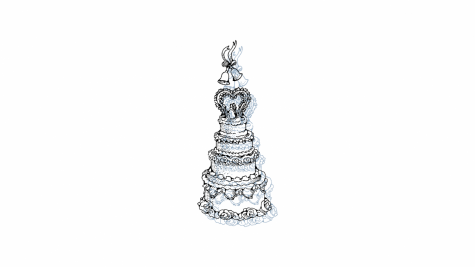
Marriage in the time of Covid-19
Chelsea Staub
“Do you think we’ll have to postpone our wedding?” I asked my fiancé. “Nah, that isn’t for a while…we should be fine,” he said in March. 10 months later, we cancelled our wedding.
Twice.
Adrian and I got engaged on a beautiful fall day in October of 2017. After we excitedly called family and friends, I immediately started planning. I never thought I would fall into that trope, but I did. The dress, the flowers, the food, the booze, the weird aunts and uncles on the guest list…I fantasized about it all.
But in the summer of 2018, I uprooted everything.
Unrelated to the wedding, I was having a personal crisis. I was miserable at my job, had no sense of purpose, and could feel the existential dread creeping on me as I underwent a quarter-life crisis. I decided that before getting married, I needed to figure out my life’s purpose. It had nothing to do with the person I was engaged to, but everything else.
A year after Adrian and I got engaged, I did something impulsive. After coming home from another night shift, I stayed up until the early hours of the morning and frantically bought a series of plane tickets, blowing a chunk of my savings on three months of travel, unbeknownst to Adrian. I cried and told him the next day.
“It’s about f—–g time,” he said. “You have been talking about traveling solo the entire time I’ve known you, and you’re finally doing it.” He hugged me and reassured me that we would figure everything out; together.
And we did.
In the next coming months, I quit my job and traveled to six different countries while Adrian worked on his master’s degree. I returned home with the plan of returning to college in fall of 2019.
Two years after getting engaged, I was energized with a sense of renewal. I hired a wedding planner, booked a photographer, planned the menu with a caterer, discussed colors with the florist, and sent “Save-the-dates,” to friends, family, that one weird uncle, and the second cousin twice removed. With each new vendor, we put down deposits with confidence.
And then March of 2020 came.
“At least our wedding isn’t until October,” I told Adrian hopefully. “We’ll probably flatten the curve by then.”
As the next few months ensued, I watched with horror as masks became politicized, cases climbed, and countless lives had been lost. Our sense of normalcy changed within weeks.
After much conversation, Adrian and I decided to cancel our October wedding, with the intention of postponing it to May of 2021.
I emailed my vendors sheepishly.
“I feel so bad for all the brides this year,” replied my tent rental vendor.
I tried explaining my sense of loss to my therapist. “I feel so stupid and guilty for being sad about not having a wedding when people are dying,” I told her.
I grappled with my guilt by finding solace in news reports. Stories on brides and grooms were published as each expressed their own loss for having to cancel their weddings.
I absorbed every article, either crying in commiseration, or laughing at the absurdity of the ongoing, maskless weddings.
Each couple weeks, a wedding would appear in the headlines for being non-compliant with state regulations, creating a spike in new cases.
“I follow each state regulation,” my wedding planner told me one afternoon, “but I constantly worry if one of my weddings is going to make the headlines for being the next big outbreak.”
School and the upcoming election distracted me from my disappointment up until the morning of October 10 when I woke up to a text from my would-be mother-in-law. “Happy it was supposed to be your wedding day day! What a beautiful day!” she texted.
I groaned and rolled over in bed after throwing my phone back on my bedside table. I didn’t need a reminder of what day it was, nor did I need a reminder that the weather was absolutely perfect outside, with no need for that “rain-plan” backup tent we ordered.
I slumped through the rest of the day, and the rest of the semester, focusing on homework and Zoom classes.
It was the final week of the semester when I read an article of the “Great Conjunction” that would be taking place in the sky between Saturn and Jupiter on December 21. “Hey! It’s on our anniversary,” I told Adrian. “What if we just get married then?”
On the day of the Great Conjunction, Adrian and I got married, barefoot in our living room, on our eight-year anniversary with our families watching over Zoom as my laptop precariously balanced on a pile of pillows.
We had planned to have a big celebration in May, but with the uncertainty of the vaccine rollout, we cancelled it altogether. It seemed counterintuitive to go into debt to offer an extravagant dinner for guests, who, to be fair, would only be thinking of contracting the virus rather than the quality of my hand selected hors d’Oeuvres.
While I still felt a twinge of disappointment in missing a societally imposed milestone, the health and safety of my friends and family were just more important than an orchestrated wedding.
We have all missed milestones throughout the year – proms, graduations, weddings, baby showers, birthdays. Adrian and I are just two of the countless individuals who have had to abruptly change plans.
Adrian and I decided to use the deposits we already put down on a small, celebratory dinner with close friends and family planned for 2022.
There will be no wedding dress, no photographer, no exorbitant costs, no awkward conversation with extended family – just us and our closest allies.
As for the rest of the wedding budget?
When it is safe to do so, I will be taking another extended travel trip, but this time, with Adrian, posing in front of Stonehenge or the Great Wall of China, wearing my wedding dress for our postponed nuptials.

